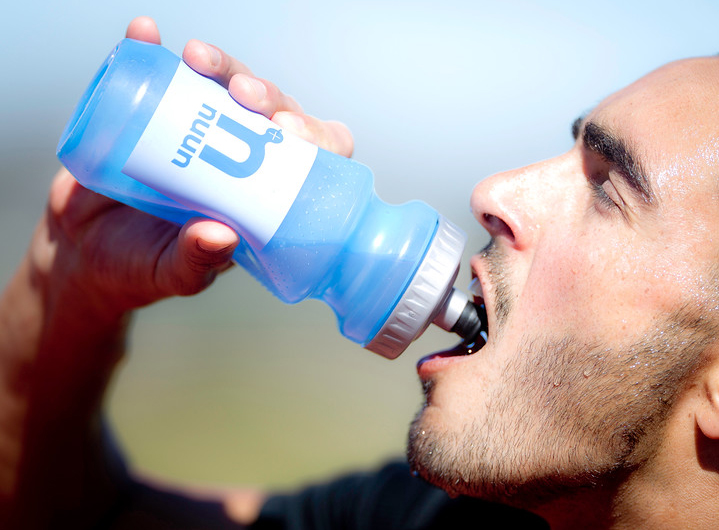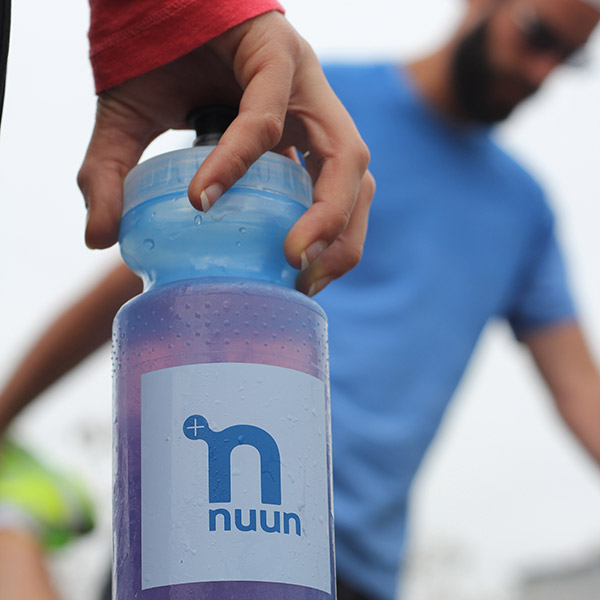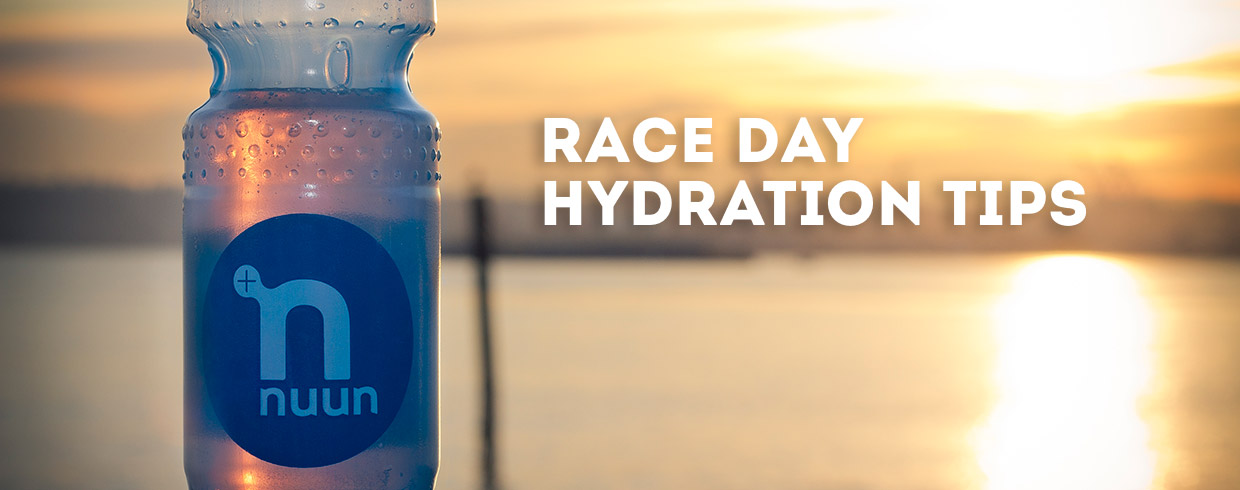Race Day Hydration Tips
Hydration tips from Nuun, the Official On-Course Electrolyte of The Biofreeze San Francisco Marathon
We’re getting closer to race weekend, and by now you should be trying to determine your race day hydration strategy. San Francisco tends to be cool but humid, which can make it surprisingly easy to overheat. Staying properly hydrated will be key to a successful race day. Each individual is different, but keep these guidelines in mind and tweak them to suit your individual hydration needs.
The week before the race:
 Make sure you’re consuming enough fluid leading up to race day. It is generally recommended to drink half your weight (in lbs) in ounces of fluid each day. Since it’s summer and the temps are higher (and especially if you’re exercising), you’ll most likely need more fluid than that, but it’s a good starting point.
Make sure you’re consuming enough fluid leading up to race day. It is generally recommended to drink half your weight (in lbs) in ounces of fluid each day. Since it’s summer and the temps are higher (and especially if you’re exercising), you’ll most likely need more fluid than that, but it’s a good starting point.
A quick and simple way to monitor your hydration status is to check your urine color. The goal is a pale yellow color. If your urine is dark, you need to consume more fluids. If your urine is clear, it means your body isn’t absorbing the fluid and you need an electrolyte-rich fluid (such as nuun).
5K distance:
You will most likely not need to hydrate during the race, since most individuals will complete the race in under one hour. However, if you find yourself overheating, consider stopping at the aid station for a sip or two.
Since you won’t hydrate during the race, focus on pre- and post-race hydration will be important. Try to drink 16 oz of an electrolyte-rich fluid 1-2 hours before the race. After the race, replace lost fluids slowly.
13.1 distance:
Since you’ll be out on the course longer than an hour, you will want to hydrate during the race. Depending on the environmental conditions the day of the race, you’ll want to consume 16-24 oz of electrolyte-rich fluid each hour you’re on the course.
The 1st Half Marathon course has 6 hydration stops, and the 2nd Half Marathon has 10. For this distance, the choice to carry your own fluid is up to you. However, if you’re not carrying your own fluid, make sure to take a sip at each hydration station.
26.2 distance:
 On race day, stick to fuel sources you’ve been training with and don’t make drastic changes to your consumption routine. The last thing you want is an upset stomach during the race.
On race day, stick to fuel sources you’ve been training with and don’t make drastic changes to your consumption routine. The last thing you want is an upset stomach during the race.
A stronger emphasis needs to be placed on eating the right foods the night before the race. Your dinner should be a balanced meal that is rich in carbohydrates, with some protein and fat to go with it.
Similar to a Half Marathon, you’ll want to consume 16-24 oz of electrolyte-rich fluid per hour. For the Full Marathon, however, you should also consider adding a small amount of carbohydrates to your fluid. Studies have shown this will improve your fluid absorption rate, helping you hydrate faster. For example, in a 16 oz bottle, you would use 1 tab of nuun Active with 2-3 tablets of PLUS for nuun. Breaking up carbs between fluid and fuel can also be easier on sensitive stomachs.
The Full Marathon course has 16 hydration stops. If your stomach is easily upset, it is recommended that you carry your own fluid, such as you would for a long training run. However, if you’re not carrying your own fluid, make sure to access your thirst and consider taking a sip at each stop, even if it’s just a swish and spit. You may not want to drink the whole cup, but a slow-but-steady hydration strategy can help ensure a successful race day.
Ultra distance:
Same as you’re watching your fluid intake leading up to the race, make sure you’re also monitoring your nutrition so that you prepare yourself to start the race off on the right foot (pardon the pun).
For this distance, the composition of what you’re eating during the race will differ from the Full Marathon. Since you’ll be on your feet a lot longer, adding a bit of protein mid-run will help reduce muscle damage, and can even help improve muscle function.
Similar to the marathon, you’ll want to consume 16-24 oz of electrolyte-rich fluid per hour that also contains a few grams of carbohydrates.
Finally, make sure to check and double check your drop bags, since there will not be official hydration stops during the first half of your 52.4.
One final tip: For all distances longer than 5K, you’ll want to consume 30-60g of carbohydrates per hour to perform at your best. How you do that is up to you (1 energy bar, 1-2 energy gels, or 1-2 servings of energy chews), as you know your body best.
Whatever distance you’re running, we’re excited to hydrate you on race day and are looking forward to cheering you on!



Shanee Wright
July 6, 2016 (2:00 pm)
I am impressed with the mile by mile history and description by Erin Mara…..I would love to have this available audibly so I could listen during the race!